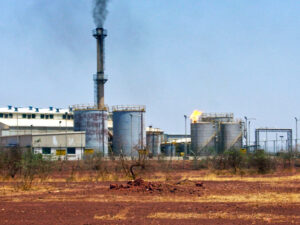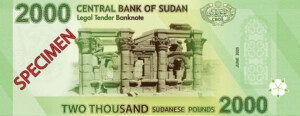Economist: Budget approval delays impact Sudan’s fragile economy

Economist Mohamed El Nayir (Photo: Supplied)
Economist Mohamed El Nayir criticised the delay in the 2023 budget approval, pointing to its negative effects on the economy, which already constitutes a heavy burden on the Sudanese. He laments that it is the first time in the history of Sudan that a delay in the national budget approval has occurred.
In an interview with Radio Dabanga, Nayir says he called on the government to commit to approving the budget at the specified time, and pointed to ambiguity in its provisions as well.
The economist said challenges are facing the budget in the absence of support of the international community in terms of loans and grants. Therefore the state should search new additional resources that do not affect the life of the people.
Low purchasing power
Merchants in Khartoum complain of stagnation and decline in sales by at least 30 per cent.
In a poll conducted by Radio Dabanga in the city, trader Majdi Gamareldin said that the recession continues. The stability of the Dollar rate is not improving the market, he noted. His colleague Mohamed Yousef complained that though goods are available and prices are low, there are no buyers in the markets.
Trader Bahaaeldin Mohamed Ali attributed the current stability of market prices of most commodities and the Sudanese Pound to stagnation, pointing to the severe weakness of purchasing power of the people. “The income of most people is much too low to buy anything other than food which has become ridiculously expensive,” he said. “And the food prices are still increasing, as there is no market mechanism controlling the prices. So food traders are withholding grains and beans from the market, until the prices have risen.”
Recession

Economic analyst Kamal Karrar said that the stability of the dollar price does not mean an improvement in the economic situation. In an interview with Radio Dabanga, he said that commodity prices are on the rise, stressing the escalation of inflation rates.
He attributed the stability of the Dollar exchange rate to the great recession in the economy and the halt in trade and export.
He warned of a significant decline in growth, with a serous scarcity of essential commodities, especially medicines, “which indicates the dire deterioration in the economic situation”.
Karrar questioned the reports of the Central Bureau for Statistics regarding the decrease in inflation in November to 88.83 per cent.
“Contrary to what the Central Bureau for Statistics reported, the prices of consumer goods and various services are still rising. Any Sudanese can tell you that,” he said.
“Semi-independent reports on the inflation in Sudan this year until now say that the price increases exceed 1,000 per cent,” he explained. “It is likely that the purpose of these reports is to deliver a message to the Sudanese and foreign public opinion, showing that the economic policy based on the specifications of the International Monetary Fund and the World Bank has positive results, as evidenced by the drop in inflation.”











 and then
and then